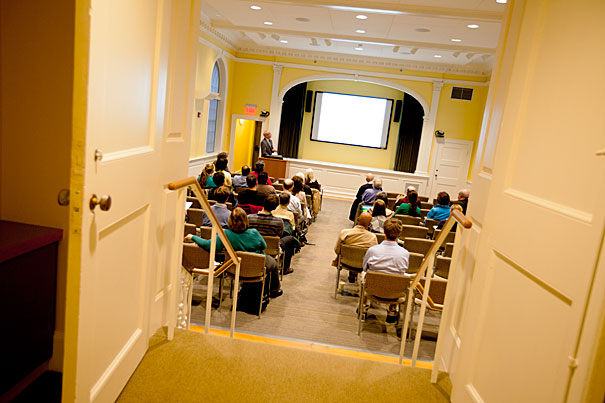Health
-

Break in the case for long COVID investigators
Research highlighting chronic inflammation opens path to treating illness that affects millions of Americans

-

The problem with the school smartphone debate
Study finds most districts already regulate devices. Is the real issue enforcement?

-
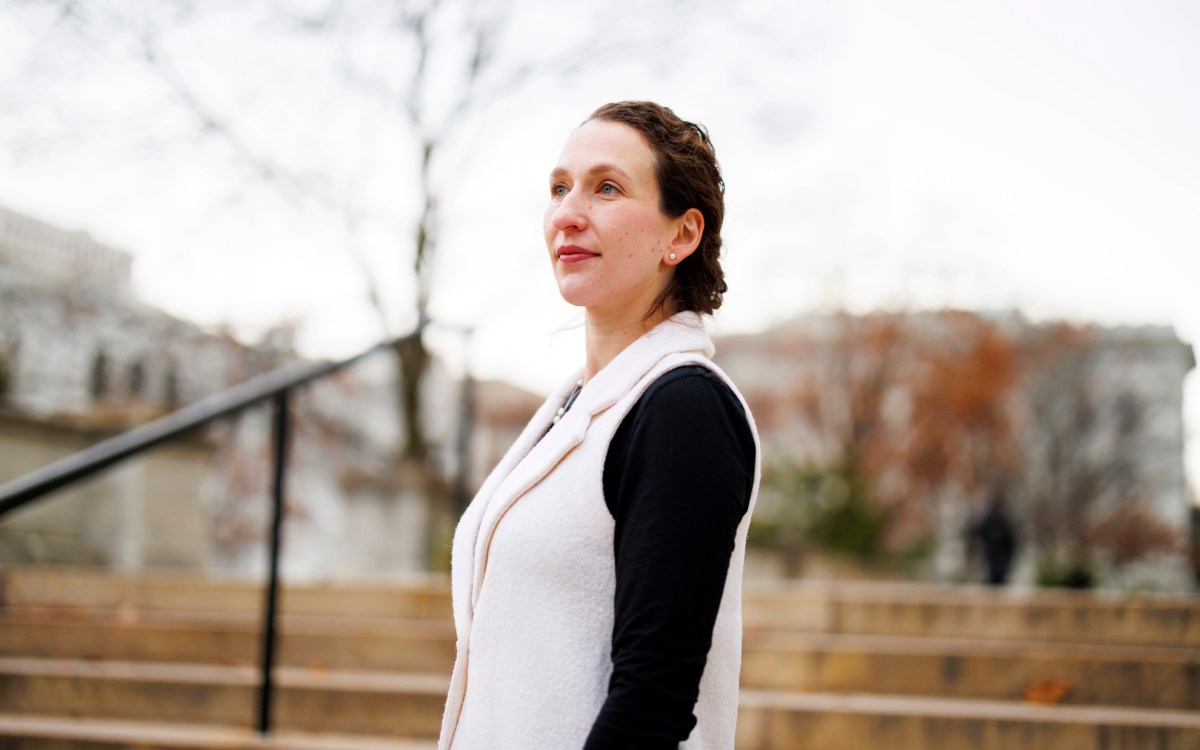
Just who gets a say at FDA public drug-approval hearings?
New research shows negative voices are relatively rare in drug approval hearings.
-

Your digital twin might save your life
AI, statistics offer new possibilities for personalized medicine
-

Time to legalize psychedelics?
Campus debate weighs therapeutic need vs. safety questions
-

How a toxin from the gut microbiome may help spark colorectal cancer
Findings suggest colibactin may be promising target for disease prevention

-
Push for name-brand drugs
More than a third of U.S. physicians responding to a national survey indicated they prescribed brand-name drugs when appropriate generic substitutes were available.

-
One cell is all you need
Scientists at Harvard have pioneered a breakthrough technique that can reproduce an individual’s entire genome from a single cell. The development could revolutionize everything from cancer treatment, by allowing doctors to obtain a genetic fingerprint of a person’s cancer early in treatment, to prenatal testing.
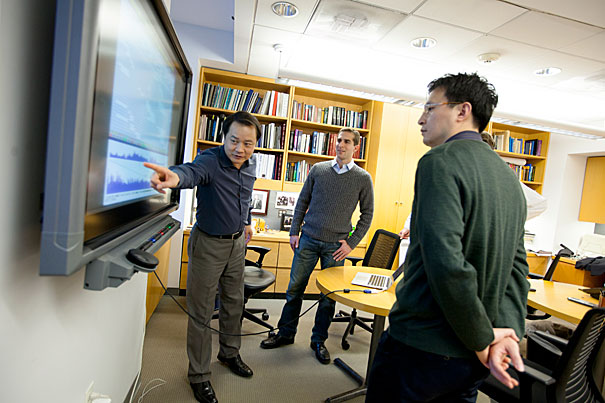
-
A treatment for ALS?
According to researchers, results from a meta-analysis of 11 independent amyotrophic lateral sclerosis (ALS) research studies are giving hope to the ALS community by showing, for the first time, that the fatal disease may be treatable.
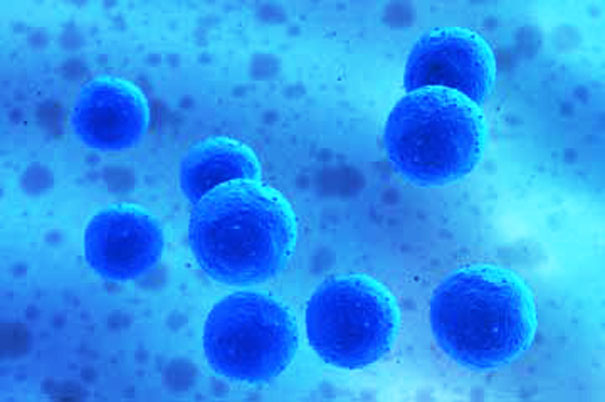
-
Battling a bacterial threat
Harvard physicians and scientists are joining forces to tackle one of the most troubling developments on the medical landscape: the rise of drug-resistant bacteria.
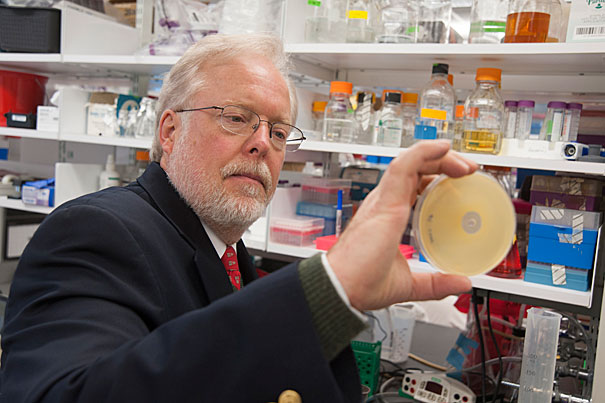
-
Problem with generic meds
Researchers from Harvard-affiliated Brigham and Women’s Hospital have found that some patients who receive generic drugs that vary in their color are over 50 percent more likely to stop taking the drug, leading to potentially important and potentially adverse clinical effects.
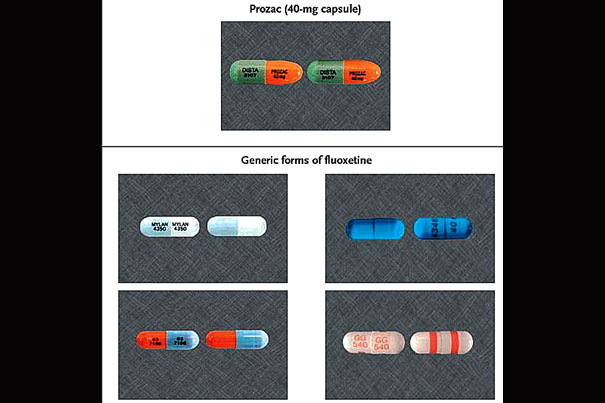
-
Sniff mechanics
As described in a Dec. 19 paper in Neuron by Venkatesh Murthy, a professor of molecular and cellular biology, researchers have, for the first time, shed light on how the neural feedback mechanism of the olfactory system works by identifying where the signals go, and which type of neurons receive them.
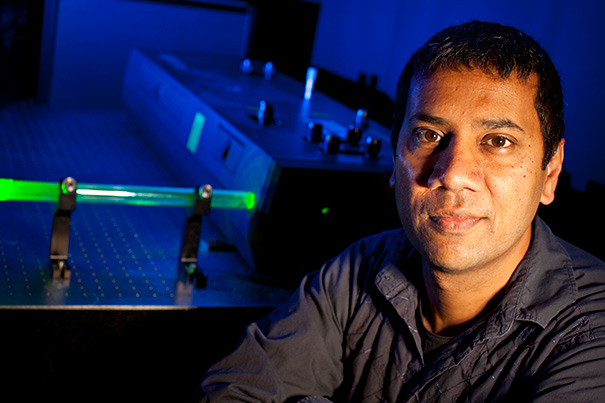
-
Battle cries of freedom
A Countway Library exhibit at Harvard Medical School brings the suffering of the Civil War to light.

-
Extra chemo could be answer
Researchers have found that young patients with an aggressive form of leukemia who are likely to relapse after chemotherapy treatment can significantly reduce those odds by receiving additional courses of chemotherapy.
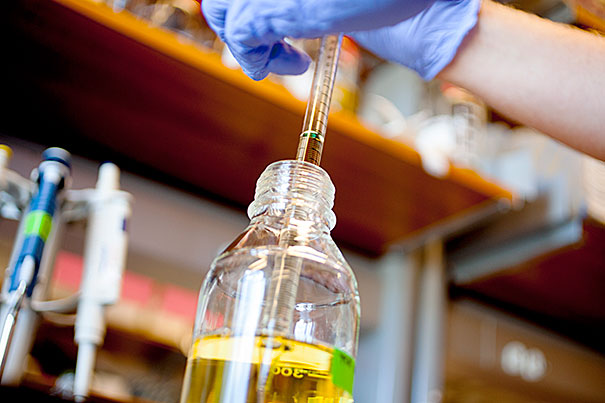
-
Solving a biological mystery
A team of Harvard researchers has shown that insects like crickets possess a variation of a gene — called oskar — that is critical to the production of germ cells in “higher” insects. That discovery suggests that the oskar gene emerged far earlier in insect evolution than researchers previously believed.
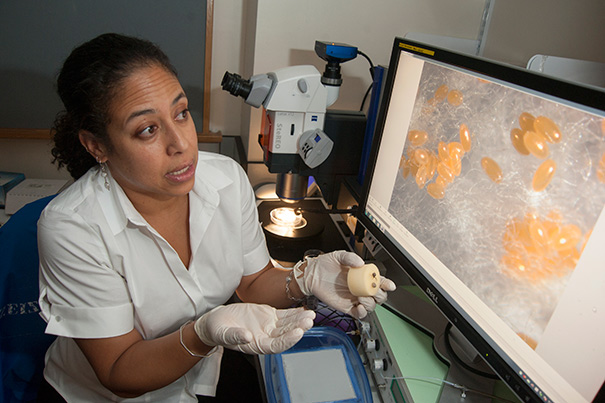
-
The bounty of EDEN
An associate professor at Harvard, Cassandra Extavour also heads up the Evo-Devo-Eco Network (EDEN), a collaborative group of researchers devoted to encouraging the study of nontraditional “model” organisms, ranging from sea anemones and crickets.
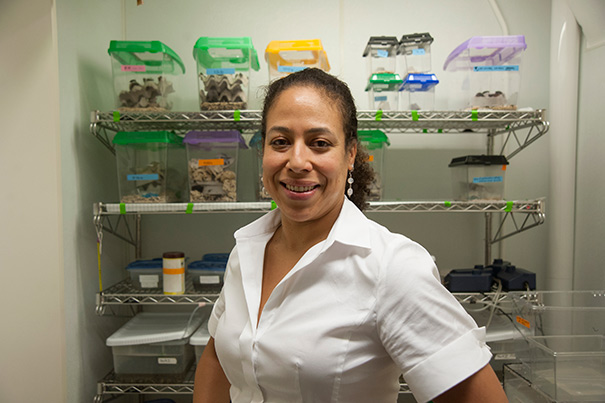
-
Birth of new cardiac cells
In a study from Harvard-affiliated Brigham and Women’s Hospital, researchers used a novel method to identify the new heart cells and describe their origins.
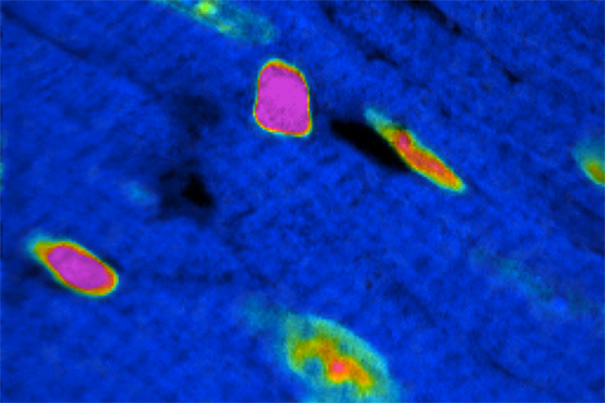
-
The ants come marching
Aaron Ellison, a senior research fellow in ecology at Harvard Forest, has co-authored a new book, “A Field Guide to the Ants of New England.” During a discussion, he explained their pivotal importance to nature.
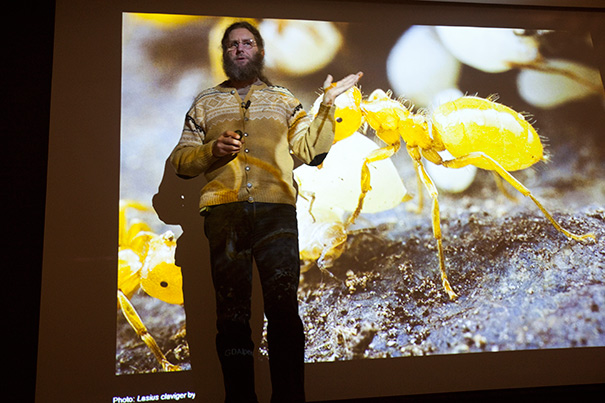
-
‘Stem cell tourism’ growing trend
A Harvard panel examined the problem of clinics around the world that provide stem cell treatments for intractable conditions. Although there is no medical evidence of the treatments’ effectiveness, such clinics have drawn thousands of patients from many countries.
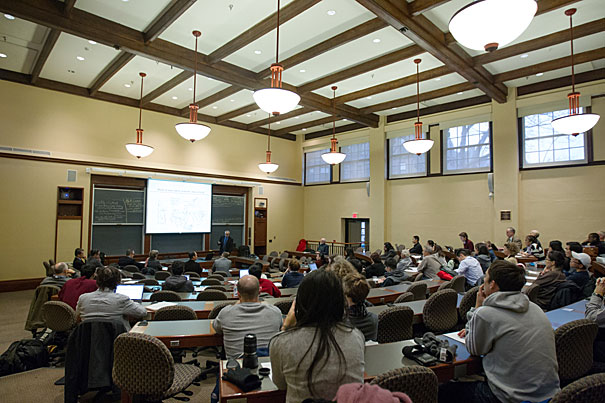
-
Sophisticated worms
In a new study of worm locomotion, researchers show that a single type of motor neuron drives an entire sensorimotor loop.

-
TB test offers rapid results
A new rapid test for tuberculosis (TB) could substantially and cost-effectively reduce TB deaths and improve treatment in southern Africa — a region where both HIV and tuberculosis are common — according to a new study by Harvard School of Public Health researchers
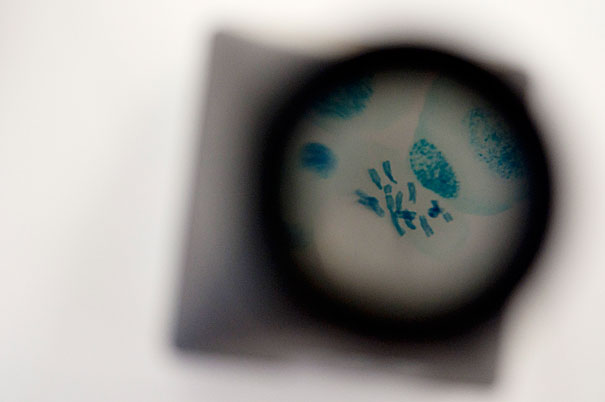
-
Glimpses of paradise
Photographer and Harvard affiliate Tim Laman worked with Edwin Scholes of the Cornell Laboratory of Ornithology to document all 39 species of birds of paradise.

-
NFL chief talks player safety at HSPH
NFL Commissioner Roger Goodell highlighted recent moves to make the game safer and affirmed a commitment to player safety Thursday (Nov. 15) during a talk at the Harvard School of Public Health.
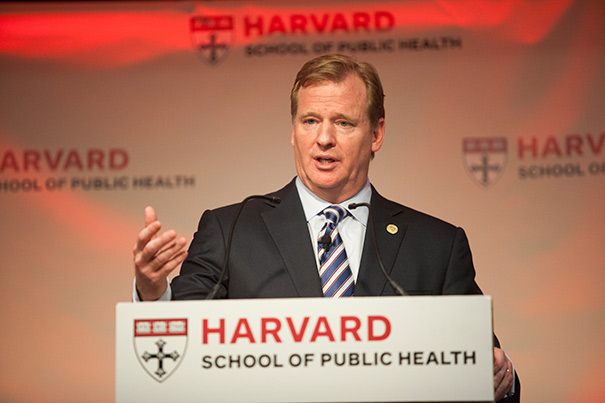
-
New views on deadly diseases
Harvard researchers are challenging the popular portrayal of Ebola and other viral hemorrhagic fevers. In a new paper in Science, researchers present evidence that the diseases may be more common — and much older — than previously thought.
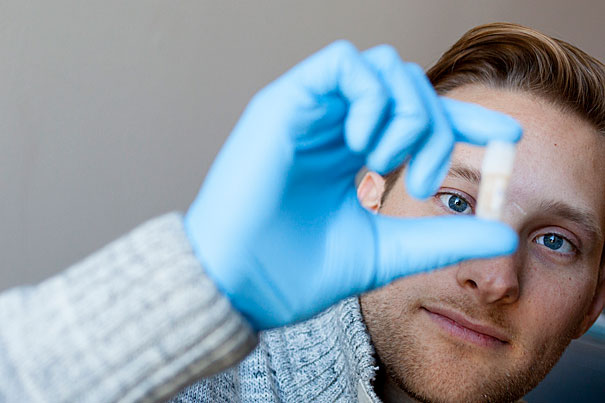
-
An experiment gone horribly awry
Victims of U.S. syphilis experiments in Guatemala are still awaiting compensation that may or may not come, even as new laws passed in the wake of 9/11 make it harder, in some circumstances, to sue disease researchers for wrongdoing, panelists at Harvard Law School said.
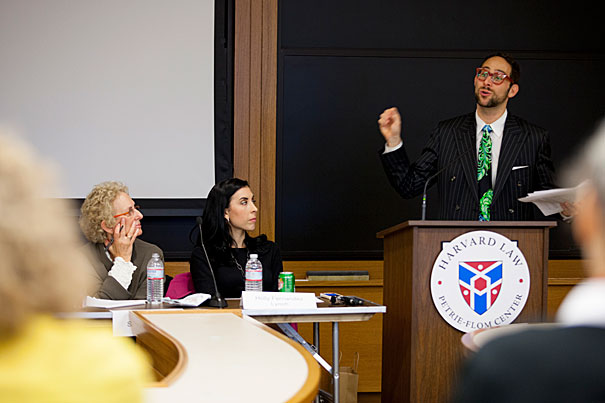
-
Meditation’s positive residual effects
A new study has found that participating in an eight-week meditation training program can have measurable effects on how the brain functions even when someone is not actively meditating.
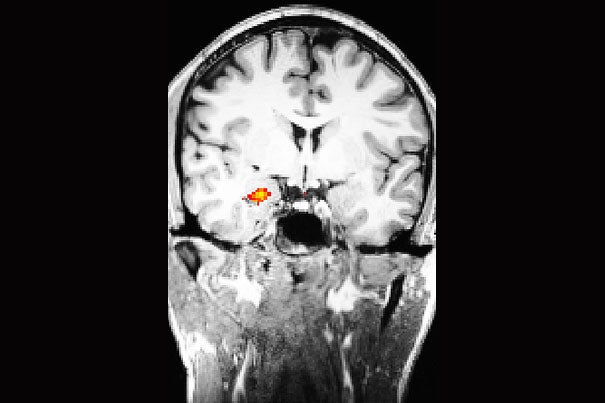
-
Green light for Obamacare
Health care specialists discussed post-election Obamacare, including potential bumps in the road, in a panel talk at the Harvard School of Public Health.

-
When parasites catch viruses
Researchers have found that a protozoan parasite causing an STD that affects a quarter of a million people yearly is fueled in part by its own viral symbiont. Antibiotics that simply kill the parasite are not the solution.
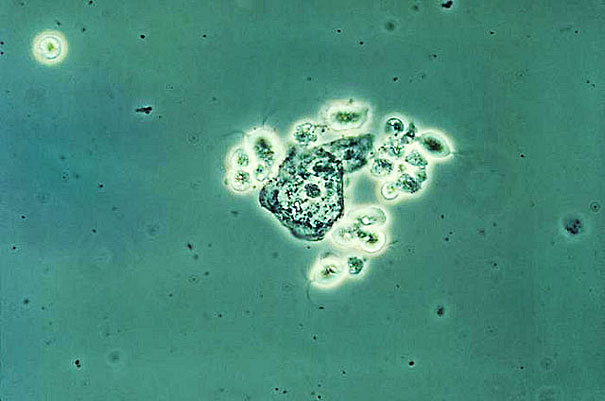
-
Insulin and colon cancer linked
Researchers have found that colorectal cancer survivors whose diet and activity patterns lead to excess amounts of insulin in the blood have a higher risk of cancer recurrence and death from the disease.

-
New way to model human disease
Researchers at the Wyss Institute for Biologically Inspired Engineering at Harvard University have mimicked pulmonary edema in a microchip lined by living human cells. They used this “lung-on-a-chip” to study drug toxicity and identify potential new therapies to prevent this life-threatening condition.
-
How much exercise is enough?
“We found that adding low amounts of physical activity to one’s daily routine, such as 75 minutes of brisk walking per week, was associated with increased longevity: a gain of 1.8 years of life expectancy after age 40, compared with doing no such activity,” explained Harvard Medical School Professor of Medicine I-Min Lee.

-
Probing sleep’s drowsy mystery
Harvard researchers have worked for years to understand better the familiar mystery of sleep, highlighting not only what happens when we close our eyes, but also the effects on us when we don’t.
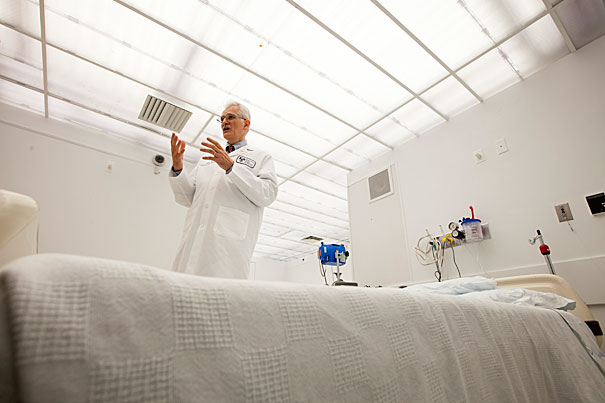
-
New genetic links for Crohn’s, colitis
Researchers find that they have the necessary starting material to understand the pathways that contribute to Crohn’s disease and ulcerative colitis, and they also have a framework to better appreciate that these may not be two distinct diseases, but rather collections of many different diseases.
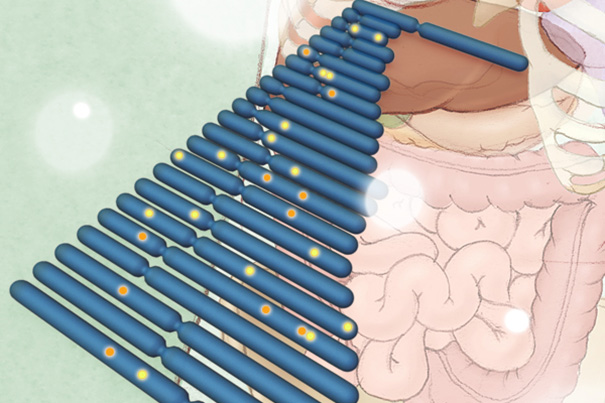
-
So doggone complicated
Geneticist Elaine Ostrander runs a comparative-genomics lab that examines dog DNA to understand better the traits that might aid understanding of human diseases.
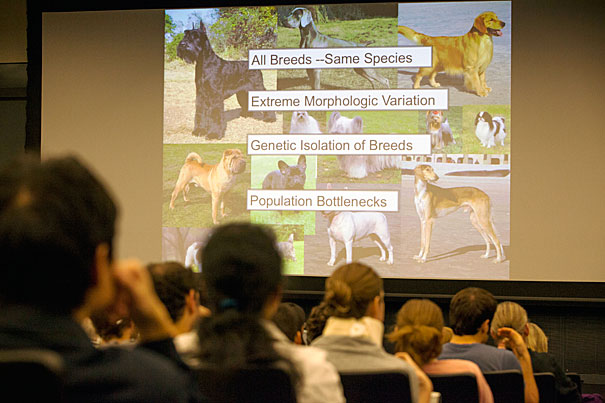
-
Aspirin’s impact on colorectal cancer
Harvard researchers at Dana-Farber Cancer Institute find that aspirin therapy can extend the life of colorectal cancer patients whose tumors carry a mutation in a key gene, but it has no effect on patients who lack the mutation.

-
A plan to stop cholera’s spread
HMS Professor John Mekalanos, an expert on cholera, suggested Oct. 22 that relief workers and peacekeepers from cholera-endemic countries be treated with antibiotics before serving in cholera-free countries, as a way to avoid a repeat of the post-earthquake cholera epidemic in Haiti, which has killed thousands.
